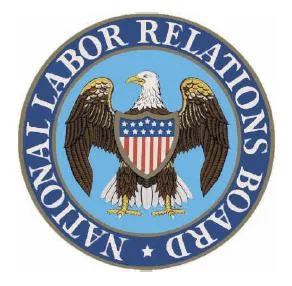Protecting online free speech in the workplace

Although many people don’t know it, the agency that protects your right freely to discuss your job, your boss, and your workplace on Twitter, Facebook and other online forums is now in jeopardy.
That agency is the National Labor Relations Board, or NLRB. This board was established in 1935 to enforce our nation’s basic labor law, the National Labor Relations Act, and is responsible for maintaining U.S. labor law and protecting workers’ rights to organize. But it’s also the protector of employees’ right to speak out online about working conditions without fear of firing or discipline.
Social media free speech has become an important – and growing – focus of the NLRB. Acting Labor Board General Counsel Lafe Solomon noted that there has been a “strong uptick” in the number of social media cases handled by the Board, including over 100 cases involving social media since 2010. These include:
Talking about your boss: At Bettie Page, a woman’s clothing store in San Francisco, a group of employees had lodged a number of complaints with the store owners about their manager’s unprofessional behavior. Frustrated with being ignored, employees finally took to Facebook. Holli Thomas posted, “needs a new job. I’m physically and mentally sickened.” Vanessa Morris responded that the manager is “as immature a person can be” and Brittany Johnson agreed that “bettie page would roll over in her grave.” Thomas, Morris and Johnson were fired on trumped up charges. But they filed a complaint, and a NLRB judge found that they lost their jobs as a direct result of their Facebook activity. Bettie Page had clearly violated the worker's "protected concerted activity" rights under the NLRA, and the judge ordered that it reinstate the three clerks with compensation for any loss of earnings and benefits.
Discussing Work Conditions: At Hispanics United of Buffalo, a nonprofit social services provider in New York, Mariana Cole-Rivera started a Facebook thread, asking, “Lydia Cruz, a coworker feels that we don't help our clients enough at HUB. I about had it! My fellow coworkers how do you feel?” Her colleagues immediately voiced their support, writing, “Try doing my job. I have five programs” and “What the hell, we don’t have a life as is.” Cole-Rivera and four caseworkers who responded to her lost their jobs. But the NLRB found that their posts were the type of “concerted activity” for “mutual aid” that is expressly protected by the NLRA, since it involved a conversation among coworkers about their terms and conditions of employment, including their job performance and staffing levels. The judge ordered that the fired workers be fully reinstated to their jobs with back pay.
As companies adapt to 21st century technologies, the NLRB has shown to keep pace with protecting workers and their rights to free speech. Without the NLRB’s important protections and enforcement, employers would never be held accountable and workers would have no legal recourse for unjustified firings over workers’ tweets or Facebook posts.
This makes the upcoming US Senate battle to confirm the full slate of five NLRB nominees all the more important for American workers who use social media.
Later this summer, the US Senate will likely take up the slate of President Obama’s five qualified nominees to the NLRB. Two of the five seats on the NLRB are currently vacant and the term of another member will expire in August. Without the Senate majority taking action to overcome obstruction and move these nominees forward, the NLRB will stop functioning by late August.
That’s why the Communications Workers of America (CWA) has launched a Facebook campaign and accompanying social media push that highlights the role of the NLRB in protecting free speech in the workplace. Know more about the NLRB and your right to speak freely on and offline. Read the new backgrounder on the NLRB and free speech in the workplace: For more information on CWA’s latest social media campaign, please visit here.
In addition, MoveON.org, is circulating an online petition, Protect your right to free speech online. Be sure to sign on.
Give Us Five: A Fully Functioning NLRB Needs All Five Members (Larry Cohen, Huffington Post, May 16, 2013)
NLRB sees strong uptick in social media cases (Reuters, Mar. 20, 2013)
Employer Ordered To Rehire Workers Who Badmouthed Boss On Facebook (aol.Jobs, May 3, 2012)
Even if It Enrages Your Boss, Social Net Speech Is Protected (NY Times, Jan. 21, 2013)
Why the NLRB Matters: Free Speech in Workplace (CWA)
Protect your right to free speech online (MoveOn petition)
CWA members oppose AT&T’s attempts to stop serving rural and low-income communities in California
CWA urges FCC to deny industry attempts to loosen pole attachment standards
CWA District 6 reaches agreement with AT&T Mobility



